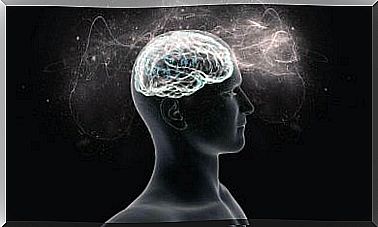Marriage Or Common Law: Which Is Better?

When a couple decides to move to the next level, they are often faced with a dilemma: marriage or common law? Of course, those who are very attached to religious values have nothing to decide, since their beliefs have an answer to that question. The less religious and skeptical do tend to weigh the two alternatives.
Sometimes, the dilemma between marriage or free union is approached from the most peripheral and trivialized. In reality, it is not a matter of choosing between signing or not signing papers, but rather of structuring a particular type of commitment between two people who love each other and have decided to live together.
Nor is it about “pleasing” society or conventions, but about setting parameters for coexistence. The choice between marriage or free union will shape, to a large extent, the type of relationship, and will also have different legal effects and on the children. How to approach that decision?

Marriage or free union?
Faced with the dilemma between marriage or free union, the first thing is to point out the differences between these two types of union. Marriage has more defined parameters. The religious figure or the judge expressly indicate the commitments to which the two people who join are subject.
Generally speaking, marriage means a promise of fidelity and loyalty, basically. Both commit themselves, religiously or civilly, not to exceed certain limits. In the same way, in religious marriage there is usually a definitive promise: “until death do you part.”
In civil unions, formulas that allude to the intention of both parties to give permanence to the bond are also common. In such a changing world as the one we are in, this explicit or implicit commitment to maintain the union indefinitely is perhaps what most uncomfortable many couples.
In the free union, meanwhile, the existence of imprecise parameters tends to prevail. The most common is that the couple has more expectations than commitments. The union takes place in fact and both are open “to see what happens.” The charges are accommodated along the way, depending on the way the relationship flows.
Advantages and disadvantages of marriage
Precisely because of the explicit and punctual nature of the commitment, those who marry tread on firmer ground. They have formally declared their willingness to comply with some agreements and bet on the stability of the union. In that sense, marriage protects, to some extent, from uncertainty.
In marriage, an idea of love is assumed, or should be assumed, that does not rest only on the liveliness of the feeling, but on the decision of those involved. In other words, the union is not based solely on mutual affection, but rather a rational determination of the will is added to this.
On the other hand, many couples, especially in current times, point out that this kind of “certainty” in the face of the union, detracts from its charm. In fact, statistics show that in many places there are a greater number of separations between those who marry, than among those who live in common law. Perhaps this is due to the fact that, finally, the sentimental ups and downs prevail over the decision.

Advantages and disadvantages of free union
Free union, as the name implies, provides a much broader framework, at least in principle. It is a space where “anything can happen” and, therefore, the absence of certainties helps mutual enthusiasm have greater encouragement. Neither one nor the other are sure that the relationship will last and this can motivate them to cultivate it with more care.
Likewise, in the common law there is implicitly the possibility of structuring and restructuring agreements and parameters. Although this can also happen in a marriage, living together in fact tolerates changes more easily. It also makes breaking the engagement much easier from a formal point of view.
On the other hand, the lack of definition can lead to misunderstandings, lightness and, sometimes, a lack of stability. In the early stages this can be exhilarating, but when love stops throwing butterflies in the stomach, things can get complicated.
Finally, what determines the success of a couple union is not in itself the decision between marriage or common law, but many other factors. Even so, the issue would have to be addressed before taking one option or the other. Openness is essential. Also realism enough to know that both types of union will require compromises and will have difficulties.









